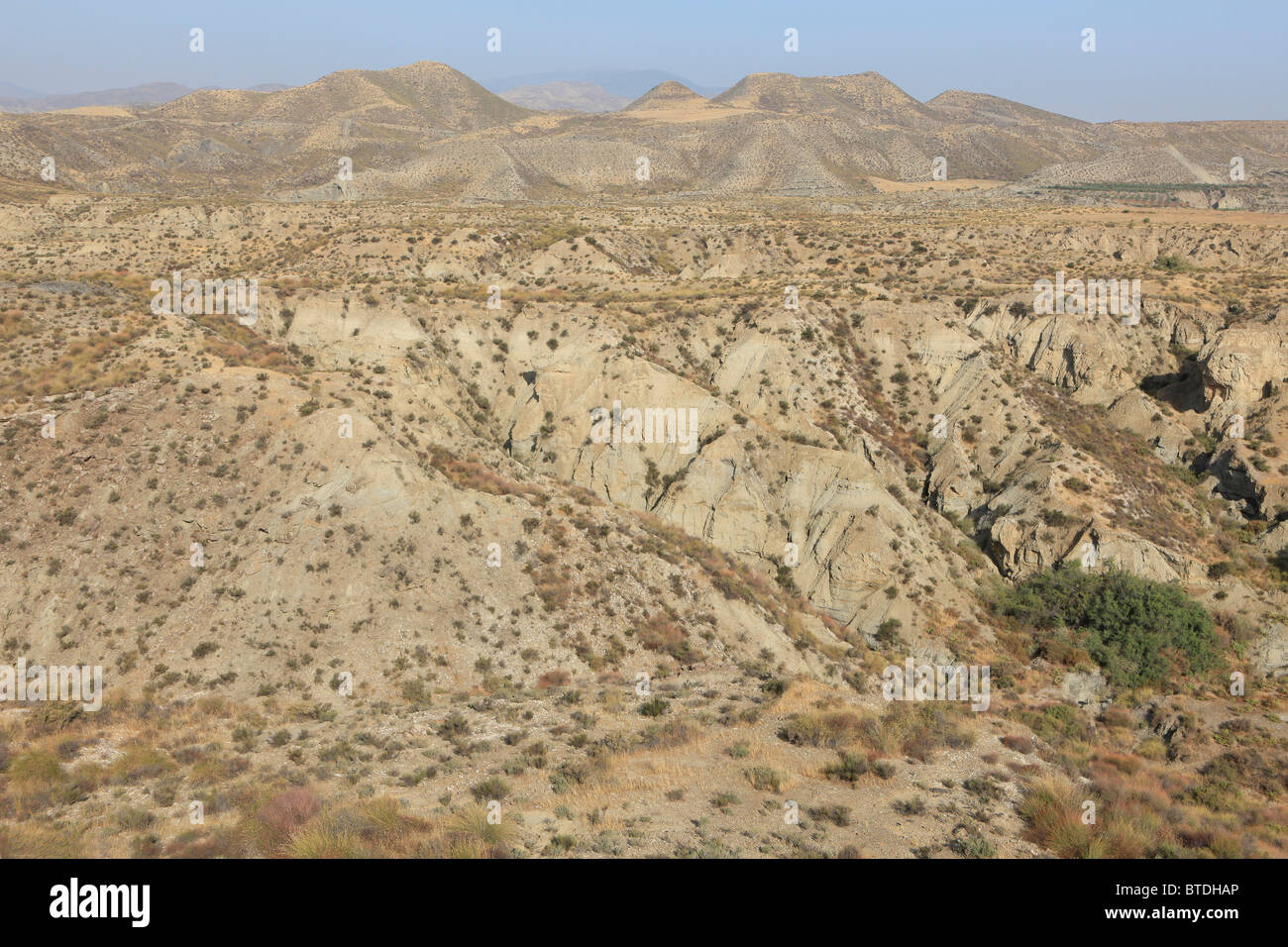Panoramic view of the Tabernas Desert in Andalusia, Spain

Image details
Contributor:
DE ROCKER / Alamy Stock PhotoImage ID:
BTDHAPFile size:
60.2 MB (4.6 MB Compressed download)Releases:
Model - no | Property - noDo I need a release?Dimensions:
5616 x 3744 px | 47.5 x 31.7 cm | 18.7 x 12.5 inches | 300dpiDate taken:
23 July 2010Location:
Tabernas Desert, Almeria province, Andalusia, Southern Spain, EuropeMore information:
The Tabernas Desert is a desert in Spain. It is located in the province of Almeria about 30 kilometers (20 miles) north of the capital, Almeria, in the Tabernas municipality. It is protected as a wilderness area (paraje natural) spanning 280 square kilometers (110 square miles). The Tabernas Desert is situated between the Sierra de los Filabres to the north and the Sierra de Alhamilla to the south-southeast, isolating it from the humid winds of the Mediterranean Sea, in an area with little rainfall known as Levante. The desert receives about 14 cm of rain a year. Together, the high temperatures felt all year long (average temperature of 20°C) and one of the longest levels of sun exposure possible (3000 hours) produce the dry climate that gives rise to this true desert. These characteristics are also aggravated by the foehn effect. Temperatures in winter rarely drop below freezing at night while during the summer temperatures during the day constantly surpass 40°C (104°F) in the shade. The little rainfall that occurs is usually torrential, so that the ground, consisting of marls and sandstone with little vegetation, is unable to retain moisture. Instead, the rain causes erosion, forming the characteristic landscape of badlands. Arroyos formed by torrential rain harbor the scarce vegetation and fauna such as Swifts, Hedgehogs, Jackdaws, Pin-tailed Sandgrouses, Blue Rock Thrushes, Stone Curlews, Trumpeter Finches, and Crested Larks. The Desert of Tabernas, because of its similarities with the North American deserts like the Far West of the American West, northern Africa, the Arabian deserts, and its lunar landscape, served from 1950s and is still used today for the shooting of many films and westerns. The spaghetti westerns were shot at the three main studios, Texas Hollywood, Mini Hollywood, and Western Leone.